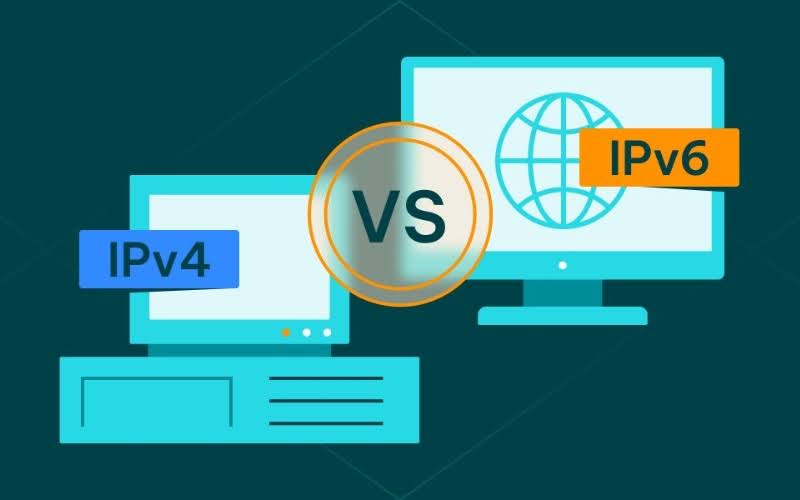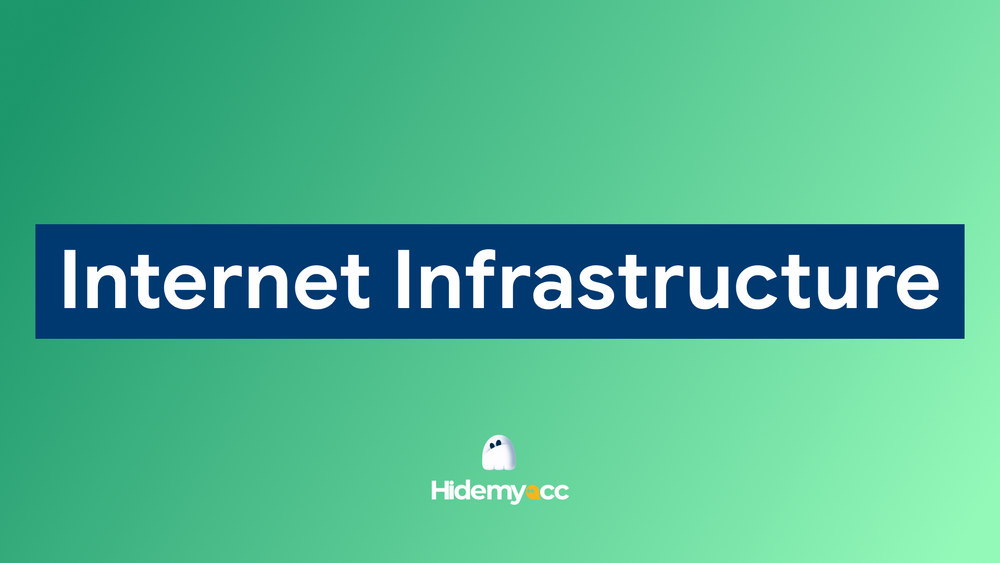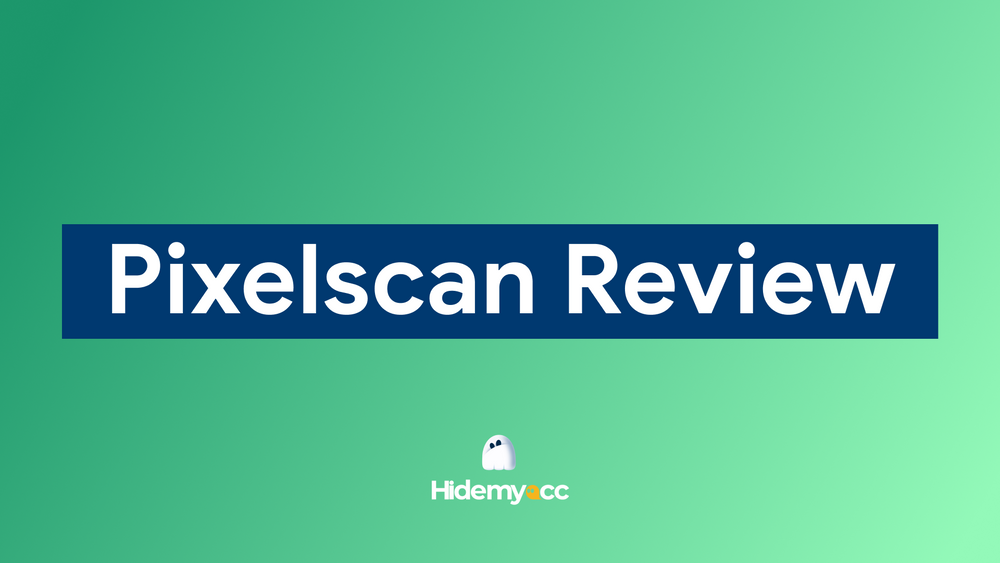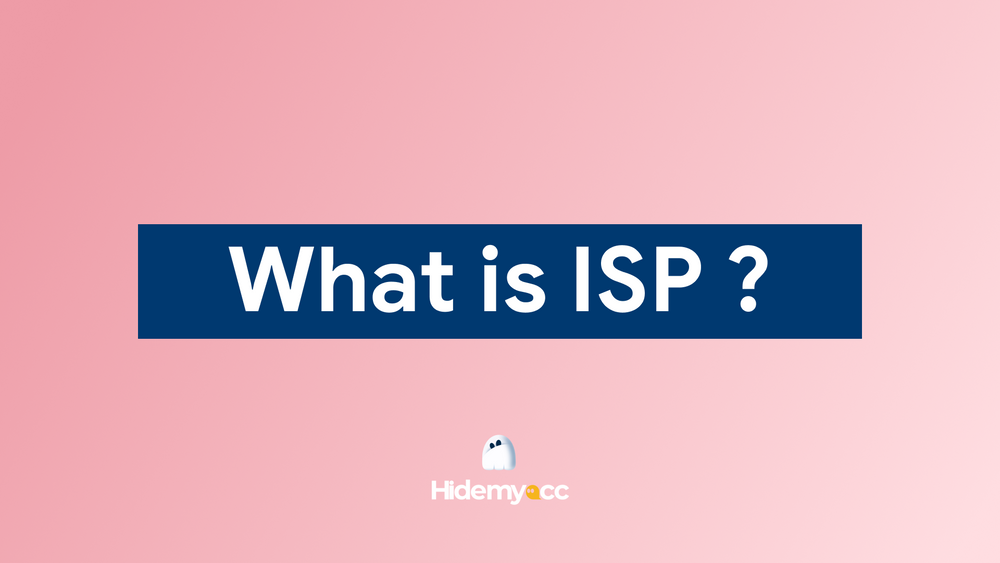n today’s digital world, understanding the differences between IPv4 and IPv6 proxy technologies is essential for secure, efficient Internet usage. Acting as intermediaries between users and the web, proxy servers play a vital role in both privacy and accessibility. This article explores IPv4 and IPv6 proxies, comparing their features, advantages, and practical applications in conjunction with the Hidemyacc Anti-Detect Browser.
1. What is IPv4 Proxy? Key Features of IPv4
IPv4 Proxy, also known as Internet Protocol version 4, is a network protocol that assigns unique IP addresses to each device connected to the Internet. As a foundational technology, IPv4 enables device recognition and communication over the network. However, IPv4 has limitations, including a shortage of IP addresses, lack of data encryption, and limited suitability for mobile networks.
IPv4 Address Structure
An IPv4 address consists of 32 bits, represented as four decimal numbers (0-255), separated by dots, like 192.168.1.1. Each number, or octet, represents 8 bits (1 byte) of the address.
Key Features of IPv4 Proxy:
- Uses 32-bit IP addresses.
- Provides unique IP addresses for networked devices.
- Routes data packets across the Internet.
- Allows packet broadcasting within a subnet.
- Supports VLSM (Variable Length Subnet Masking) for flexible subnet sizing.
- Integrates the ARP (Address Resolution Protocol) to map IP addresses to MAC addresses.

Proxy v4 is Network protocol with high security
2. What is IPv6 proxy?
IPv6 Proxy (Internet Protocol version 6) acts as an intermediary server between user devices and the Internet, forwarding user requests securely. IPv6 was developed to address IPv4’s limitations, particularly the shortage of IP addresses, while offering enhanced security features.
Structure of IPv6: IPv6 addresses are 128 bits, significantly increasing the address space compared to IPv4, and integrate IPsec for encrypted communication and authentication.
3. Key benefits of using IPv4 and IPv6 proxies
Using IPv4 and IPv6 proxies offers several benefits, including:
- Privacy: Proxies conceal users’ IP addresses, enabling anonymous browsing and shielding against external threats and malware.
- Access control: Organizations can block harmful sites, manage bandwidth, and streamline network usage.
- Geolocation flexibility: Enables access to geographically restricted content and internal networks remotely.
- Speed: Cached web pages can reduce load times and enhance browsing speed.
IPv6 vs. IPv4 Proxies: While IPv4 is widely used, IPv6 provides more extensive address availability and built-in security, such as IPsec, making it more adaptable to today’s demands for online security and scalability.

4. IPv4 vs. IPv6 Proxies: A Comparison
The table below will help you learn what is the difference between Proxy v6 and Proxy v4.
|
Criteria |
Proxy Ipv4 |
Proxy Ipv6 |
|
Size |
32 bit |
128 bit |
|
Address format |
Number |
Letters and numbers |
|
Mobile device compatibility |
No because the address uses decimal point notation |
Yes because the address is separated by colons, in hexadecimal form |
|
Security |
Options |
IPSec |
|
Mapping to MAC address |
Address Resolution Protocol - ARP |
Neighbor Discovery Protocol - NDP |
|
Manage local subnet groups |
Internet Group Management Protocol - IGMP |
Multicast Listener Discovery - MLD |
|
DNS Record |
Address A |
Address AAAA |
|
Package size |
≥ 576 byte |
≥ 1208 byte |
|
Network configuration |
Manually or via DHCP |
Automatic configuration |
|
Fragmentation |
During routing |
By sender |
|
Address characteristics |
Network Address Translation (NAT) for address mapping |
Direct addressing is possible thanks to the larger address space |
|
Address type |
Multicast, Broadcast, Unicast |
Anycast, Unicast, Multicast |
|
Network configuration |
Manually or via DHCP |
Automatic |
|
Number of Headers |
12 |
8 |
|
Header length |
20 |
40 |
|
Optional fields |
Have |
Are not |
|
Checksum |
Have |
Are not |
|
SNMP |
Have |
Are not |
Compared to IPv4 Proxy, IPv6 Proxy has more advantages and more diverse applications in today's reality. IPv6 provides a huge address space compared to IPv4, helping to solve the ongoing problem of IP address shortage globally. In particular, IPv6 has a built-in IPsec protocol, providing strong security features such as encryption, authentication and access control. Therefore, in the future, IPv6 can replace IPv4 to ensure security and performance.

5. Common Questions about IPv4 and IPv6 Proxies
5.1. Which potocol should you choose?
IPv6 is often preferred due to its address capacity and enhanced security features, particularly for IoT and high-security applications. However, IPv4 remains widely supported and used in most systems.
5.2. Why use both IPv4 and IPv6?
- Compatibility: IPv4 is well-established and compatible with older devices, while IPv6 offers solutions to IPv4’s limitations.
- Gradual Transition: Transitioning fully to IPv6 takes time, and both protocols must coexist to ensure consistent, reliable access during the switch.
5.3. Can IPv4 and IPv6 proxies be combined?
IPv4 and IPv6 proxies operate independently and are not directly compatible. As many websites still rely on IPv4, a full transition to IPv6 requires updates across websites, applications, and devices for comprehensive IPv6 support.

6. Combine Proxy v4 and IPv6 with the Antidetect Browser Hidemyacc
The Hidemyacc Anti-Detect Browser is a powerful tool for secure, multi-account management, ideal for fields such as online earning (MMO). Using proxies with Hidemyacc helps prevent account restrictions by changing IP addresses and customizing device configurations. Key features include:
- IP anonymity: Conceals IP addresses to support anonymous browsing.
- Privacy protection: Prevents websites from tracking user activity.
- Multi-account management: Creates distinct profiles to manage multiple accounts on the same device without detection.
- Customizable settings: Allows individual profiles to modify IP, operating system, and browser settings.
The combination of IPv4 and Hidemyacc offers a reliable solution for secure online activities. By following this guide, you’ll have a solid understanding of the differences between IPv4 and IPv6 proxies and can make informed decisions for your browsing and security needs. For further assistance, feel free to contact the Hidemyacc support team for personalized recommendations.






